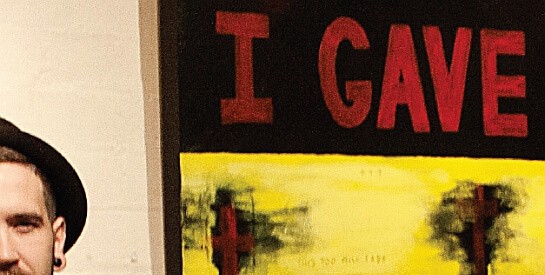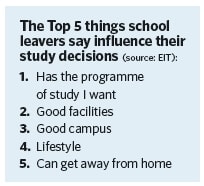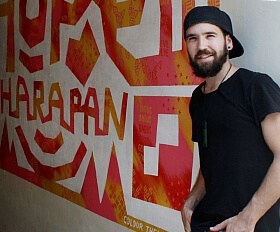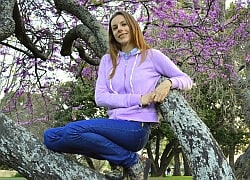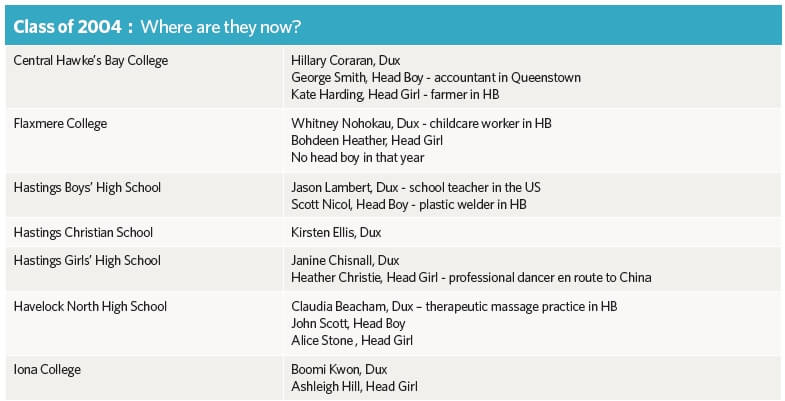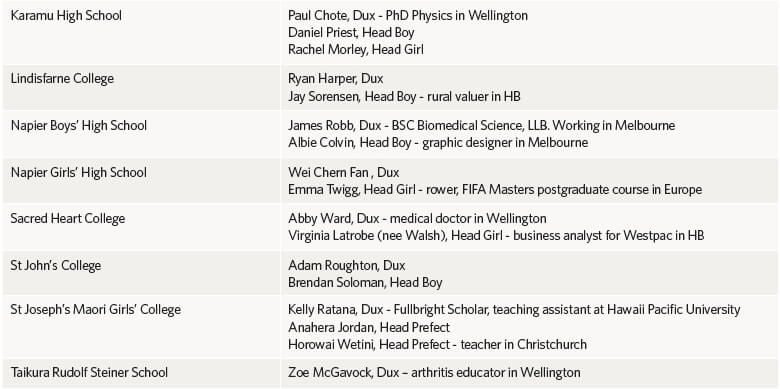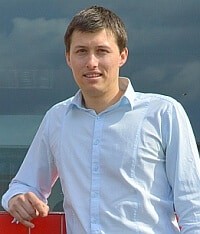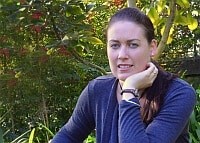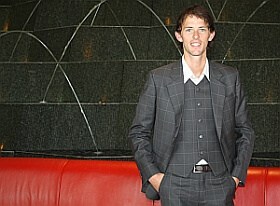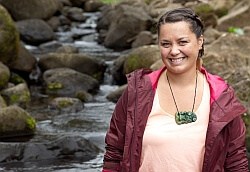As this year’s school leavers make decisions on the next step of their future, Jess Soutar Barron looks at what became of Hawke’s Bay’s ‘best and brightest’ leavers from ten years ago.
Every year about 2,000 Hawke’s Bay school leavers kiss goodbye to their secondary schools and head off to the real world in search of fame and fortune. Anecdotally – no firm numbers are available – Hawke’s Bay suffers a ‘brain drain’ as many 18-year-olds leave the region, taking their NCEA (or equivalent) with them.
Some school leavers do a gap year, some a full scale OE, some study or work in bigger cities.
Over the following years a few come back, bringing qualifications, experience, a partner, a family, bright ideas, capital. Some come only to holiday, see family, enjoy the weather. Some never return at all.
Goodbye
In some Hawke’s Bay leadership circles, this out-migration is nothing less than a social indictment of the region (“We must have a university!”), while to others it’s an entirely natural ‘tidal’ phenomenon.
Chris Collins, EIT’s chief executive, observes a number of reasons why people leave.
“There’re always students who need to leave to access specialised higher education programmes,” says Chris, whose 18-year-old will herself leave the area next year to study medicine in Auckland.“There are also students who want to experience the wider world. And sometimes parents want their kids to leave!” he says.
Brenda Chapman, marketing manager at EIT, commissions an annual survey of year 11, 12 and 13 students, asking them what they plan to do once they leave school.
“In the seven years we’ve been doing the survey, the single biggest change is the number of Don’t Knows,” says Brenda. “High school students are becoming more undecided about what they want to study, and they are also more undecided about where they want to study.”
For their part, EIT is exploring ways to attract younger people to study locally by expanding their offering.“We have set a goal to provide a wide portfolio of options for vocational and career-focused study, foundation right through to higher education.”
Younger student body
More students under 25 are choosing to go to EIT than did so ten years ago. This may be because of an increase in degree courses available or a change in economic conditions. Student numbers at EIT fell between 2004 to 2007 due to a strong economy in the region and, as an extension, parents’ ability to fund their children’s study in other cities.
“We have certainly noticed, over the last five years, an increasingly younger age group at EIT. Predominantly, mature students (25+) are the typical polytech student population, but over the last five years there’s been a dramatic shift,” explains Chris. In 2014, 50% of students were under 25; in 2009 it was only 30%.
“We are getting a higher proportion of younger students, and young people attract young people,” Chris says, adding that he is beginning to see more of the ‘cool kid’ set selecting EIT, choosing to stay at home rather than study outside the area.
“The costs of study for someone going away from home is becoming eye watering,” he notes, quoting around $25,000 a year for fees and board.
An ironic twist to the brain drain dilemma is the increase in international students coming to study in the Bay. EIT has 500 international students from 45 countries studying everything from nursing to viticulture to ICT.
Chris Collins: “So we have these young people coming from overseas and then we have locals who feel they have to leave.”
Home and away
So what does a ten-year review of the perceived brain drain tell us? Are our best and brightest leaving town and never looking back? Or are some choosing to stay and make the Bay their home?
To find out, BayBuzz tracked down high achieving school leavers from 2004. Ten years ago, each was dux or head prefect of their school, full of hope and promise.
Ten years is nothing for anyone over 45. For those age 28, it’s the decade between adolescence and full blown adulthood. Here’s what six of Hawke’s Bay’s top 2004 graduates have accomplished in their transition decade – two in the Bay, four outside (London, Melbourne, Wellington, Mexico).
Albie Colvin
Napier Boys’ High School,
Head Boy, Graphic Designer
“I left the day after I finished at Boys’ High,” says Albie Colvin, who now lives in Melbourne.
He’s a graphic designer who has set up his own practice combining design with sustainability and social enterprise endeavours. He established Colour Me Safe, an art for children initiative in South East Asia, in 2013.
“I used art as a way to transition through teen years, and it stayed critical to my wellbeing,” he explains. “Now I work with groups that bring creative arts opportunities to young people in disadvantaged areas.” He has partnered with Melbourne University, where he studied, and plans to make the initiative global.
“It gets me away from my desk. Going from high school to uni to work, this programme has given me back a balance.”
Albie is proud of the networks and collaborations he has been part of in Australia and is a big believer in getting involved with community.
“That was something that was instilled in us at Boys’ High: contribute and be an active part of life. That’s carried me through life.”
He hasn’t spent any real time in Hawke’s Bay since he left ten years ago.
“I’ve driven through twice on my way to Wellington,” he says. “We got fish ‘n’ chips.”
“I left as a child needing to get out into the world and explore and find my place in it. I don’t think I’ve seen enough to feel it’s time to come back.”
“I could have gone on scholarship to a number of New Zealand universities, but I chose not to. There was a pressure that I didn’t want to have to live up to,” he explains.
“So I went away and I worked full time, studied full time, and I did it on my own terms. I achieved things for myself.”
Albie’s view on what Hawke’s Bay needs to grow is a philosophical one. “Communities have to celebrate their differences, we need to celebrate who we are and what makes us unique and special. It’s about instilling pride in our beautiful weather, our beautiful architecture, our interlinking generations – the perception of young people to old is horrible and vice versa. It’s not necessarily about things we need; it’s a collective thought. We need to make it a positive place to be and young people will benefit regardless. It’s a whole community thing.”
Claudia Beacham
Havelock North High School,
Dux, Youth Counsellor/
Massage Therapist
From school Claudia did the first year of her psychology degree at EIT and then went to Palmerston North for two years. Her honours year was done extramurally from Hawke’s Bay.
She came home for “family and the weather”.
When Claudia finished studying she looked for work in the psychology field, her one non-negotiable was Hawke’s Bay, she wanted to stay here and make it her base.
“I looked for anything: voluntary, paid, part time,” says Claudia. “In some ways, because I am aware of our brain drain, I thought it would be cool if some of us could stay.”
Being in Hawke’s Bay is not simply something Claudia feels dutiful about.“There’s a lot of diversity here. That’s a good thing for the general tapestry of the place: more services, leisure activities, diversity in the landscape even. There’s a real energy and it’s very life giving.”
In 2009 she became a trustee of Te Whakaritorito Trust, working with young people. “There’s a need to help here; to make a difference. We’ve got some really negative stats here in Hawke’s Bay in terms of mental health … What I have seen with some young people is that life hasn’t always been easy and that effects them in different ways,” says Claudia. “If I can help then I will.”
Art was a big part of Claudia’s high school life and she believes it is a positive outlet for all young people.“For me it helped put things into perspective. Once it’s down on paper you can look at things in a way that you may not have considered before.”
“Mentoring youth is actually very enriching for me, I’ve learnt a lot from the people I work with.”
Claudia has strong opinions on the lot of young people in Hawke’s Bay. It comes from the experiences she’s had working for Directions Youth Services and for Te Whakaritorito. She has also worked with Project K, CreaArts and with a number of other youth-based support groups in the Bay.
“I tend to hear that young people are bored. There’s rural isolation, academic pressures, substance abuse, sexual exploitation, domestic violence. Some young people may feel there’s no support,” she says. “Suicide is an issue here and there can be a flow-on effect even when they’ve seen the fall out it creates. It happens so often they’re numb to it. Also there’s a ‘best not to talk about it’ idea. But I believe it is better to talk about it, in a safe way.”
Recently Claudia has started her own therapeutic massage business, Mentha Massage, and is looking at the possibility of starting a PhD in the next few years. Claudia sees herself as a ‘social entrepreneur’ integrating ten years of study, exploration and experience into a future for herself. Alongside study and working, Claudia is an accomplished ballet dancer and a violinist.
Heather Christie
Hastings Girls’ High School,
Head Girl, Dancer
As soon as she finished school Heather Christie took up a scholarship at the Leicester College of Performing Arts in the UK.
“I had always dreamed of pursuing a career in dance, but finishing my education was important, so when the offer came after high school I couldn’t turn it down.”
In 2008 she graduated and since then Heather has danced with various companies and choreographers travelling from Europe to North America. She is currently in Mexico working for a circus company, but will be on tour in China towards the end of this year.
Heather has found it hard spending so much time away from her family and it was a bright moment when her mother flew to the UK to see her graduate.
“My parents supported me so much over the years and encouraged me to follow my dreams so I was happy to show them what their continued love and support helped me achieve,” she says.
Heather has been away for ten years, only returning home twice.
“I will always love Hawke’s Bay because of my family and memories, but I have found it difficult to go back,” she explains.“After experiencing so much I have become a lot more open-minded, and coming back to such a small place takes awhile to adjust back into.”
Heather does say she would consider settling in Hawke’s Bay. “I appreciate a lot more of its beauty and architecture. When I finally settle down I couldn’t imagine a better place to do it.”
“People take for granted what they have and are oblivious to what a life they are given. After living in Mexico I realise how lucky we are in Hawke’s Bay: for the education, the clean environment, all the opportunities and most importantly the help we receive.”
Heather does feel that her opportunities in Hawke’s Bay were limited. “I think most people leave because they are looking for adventure and new experiences. It’s not because it’s a bad place, it’s because they need to expand their education and maturity. The best thing is, it will always be there to come back too. It’ll always be home.”
Jay Sorensen
Lindisfarne College,
Head Boy, Rural Valuer
Jay Sorensen went to university in Palmerston North straight after school, then returned to the Bay to work at Logan Stone.
He is part of its management team and has governance aspirations. He is also a member of the Young Leaders Committee for the Property Institute of New Zealand, and he and his wife of two years live on a lifestyle property near Hastings.
“Hawke’s Bay is a great place to live and work. Coming from a rural background I enjoy the level of diversity within the rural sector, and the opportunities that presents,” says Jay.
Jay is loyal to Hawke’s Bay and is actively involved in helping it grow. He co-founded Hawke’s Bay Young Professionals in 2009.
“I don’t see living in Hawke’s Bay as restrictive on my professional career; for some jobs that may be the case,” Jay says. “Lifestyle, friends and family are the main drivers for living here, along with Logan Stone providing me with a good opportunity to work here.”
Jay believes young people head out of town to gain life skills and experience.
“I don’t have a problem with them leaving, as long as they come back,” he says.
“I don’t think you can stop young people leaving, however you can provide incentives or opportunities to ensure they return. Often it’s difficult to gain employment in Hawke’s Bay straight out of university, and they turn to the larger centres or overseas for experience.”
Jay’s point of view comes from his social, but also his professional, observations: “In the current economic climate, young professionals returning to the Bay are still finding it difficult to get work.” He does see the most entrepreneurial of these setting up their own businesses and doing well. But he believes the region needs to think laterally about growth.
“Many successful operators have the ability to think outside the square and create a point of difference to ensure their business stands out from their competitors. In Hawke’s Bay we need to promote this kind of thinking so the region grows.”
Keeping connected with the rest of the country, and not succumbing to its isolation is also vital for Hawke’s Bay. “We need regular, affordable flights so business people can travel to main centres and vice versa. This will make sure we continue to have high net worth individuals living here, and in turn make Hawke’s Bay a better place to set up business, and attract younger people back to the region.”
Jay sees two main drivers as attractive to young people: lifestyle and earning potential.
“Hawke’s Bay ticks the lifestyle box without a doubt, but earning potential is a struggle. To increase that we need a strong economy and to make that happen involves risk,” says Jay. “I believe to grow you need to take well-educated risks. If you don’t it’s very difficult to move forward. Hawke’s Bay, as a region and as individuals, needs to carefully consider growth projects and ensure opportunities are captured when presented.”
Zoe McGavock
Rudolf Taikura Steiner School,
Dux, Arthritis Educator
“I decided quite young I would go to Otago to study. I was 14, on a family holiday, and I declared I was going there,” explains Zoe McGavock, based for now in Wellington.
“I didn’t know what I wanted to do when I left school. After four years of study at Otago I discovered Health Psychology and I thought ‘Finally! Something that actual appeals’. I found my niche.”
After completing an honours year and later a masters, Zoe is now an arthritis educator with Arthritis NZ.
Her years away at university also gave her the opportunity to connect with her heritage.
“I’m Ngaitahu on my Dad’s side and at uni I found other young pale-looking Ngaitahu! I hadn’t had access to that up here.” As part of that group Zoe got involved in cultural activities and projects, and connected with her marae.
Zoe now travels New Zealand-wide for her job. Her partner is still studying in Wellington, and both work and study keep them in the capital.
“I am definitely open to living in Hawke’s Bay in the future,” says Zoe, whose older brother is raising three sons in the Bay. “Wellington is a great place and it suits us, but we both had an idyllic, beachy upbringing and we’d like to give that to our future kids.”
“When I come back here I find it really quiet. Wellington’s busy, it’s all go. Walk down the main street here at 5pm and everything is shut. Picture tumbleweed!”
Zoe believes there is merit to leaving, for a short time at least, both for the individual and the region. “I guess if young people are leaving and upskilling, then coming back, that’s a good thing. Better than staying, but not upskilling!”
As for her visits home Zoe enjoys Hawke’s Bay for its wineries, cafes, beaches and rivers. “Although they’re not as clean as they were!” she adds.
“Home will always be where Mum and Dad are, and every now and then we jump on Trade Me and wistfully look at the houses we could afford if we lived here instead of in Wellington!” Zoe says.
Toby Hunter
Taradale High School, Head Boy,
Social Media Specialist
Toby is a data specialist with Twitter in London, so what better way to interview him than via tweets.
Where have you been for the last ten years?
Studied Marketing at Vic for three years. Lived and loved Wellington for eight years, now in Europe.
What’s been the best moment of the last ten years?
Building great friendships in university which I’ve carried to the other side of the world.
How do you feel about Hawke’s Bay?
It’s such a great, friendly place. I love visiting my parents and miss the pace of life. It’s the opposite of London!
What are your memories of being here?
Taradale High, of course, a good four years there. On top of that, playing my football with the HB team and my summers at Greendale Tennis Club. Loved my time on the courts!
Will you ever come back and live here?
Quite possibly when I’m older. Right now there’s too much of the world to see, and the job opportunity isn’t there for me.
Why do you think people leave?
Initially, university. After that, job potential, and the natural Kiwi urge to travel. Some return, some won’t.
What does Hawke’s Bay need to help it grow?
Really sell its point of difference. Use the wineries, the coast, the beautiful rolling hills. Focus on making #TheBay as accessible as possible with a focus on locally-owned high-end tourism.
Top of the Class
Kelly Ratana
St Joseph’s Maori Girls’ College, Dux
Kelly was awarded a Fulbright Science and Innovation Graduate Award in 2012 and the Rose Hellaby Graduate Award in 2013. She holds a BA/BSc in Maori/Biology and Marine Science from the University of Auckland, and a Graduate Diploma in Marine Science from the Bay of Plenty Polytechnic. Kelly has recently returned to New Zealand from Hawai’i where she completed a two year masters programme in Marine Science at Hawai’i Pacific University. Kelly is currently considering opportunities in the public sector in the mid-to-upper North Island.
Emma Twigg
Napier Girls’ High School, Head Girl
Emma is a rowing world champion bringing home the gold in the single sculls event in Amsterdam this year. She is the first New Zealand woman to win the single scull. Emma was Junior World Champion in 2005 and U23 World Champion in 2007. She is currently completing the prestigious FIFA Masters postgraduate course. This one-year masters programme in Management, Law & Humanities of Sport consists of three modules taught across three universities in Europe: De Montfort (Leicester), SDA Bocconi (Milan) and Université de Neuchâte (Switzerland). Rowing NZ has chosen not to endorse Emma’s decision to take a year out to study. Recently Emma wrote on her blog: “I’m ready to prove that a happy athlete is a fast athlete and that the quest for peace of mind and balance will not detract from my 2016 performance, rather it will add to it.”
Paul Chote
Karamu High School, Dux
Paul holds a BSc in Maths and Physics (1st class honours), an MSc (distinction) and a PhD (both in Physics) from Victoria University in Wellington. He has a particular interest in astronomy and capturing images of white dwarfs using photometry instruments (!). He is a game developer in his spare time. Paul is currently being interviewed by universities around the world for a postgraduate position in astrophysics.

